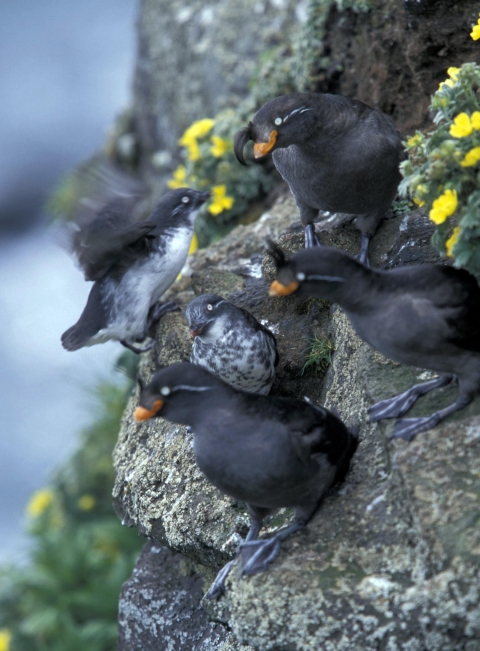Alaska – The U.S. Fish and Wildlife Service is seeking public comment on proposed potential alternative actions – ranging from no action to various methods of eradication – to address nonnative invasive rats on four uninhabited Aleutian Islands, including Great Sitkin, Amchitka, Kiska, and Attu, within Alaska Maritime National Wildlife Refuge.
These islands are unique ecosystems that, collectively with other islands comprising the Aleutian Island Archipelago, support globally important populations of seabirds. Seabirds evolved to nest in burrows on the ground, in rock crevices, or on cliff ledges on the treeless Aleutian Islands that were once free of mammalian predators, making them particularly vulnerable to predation by invasive rats. Rats on islands within the archipelago are a major threat to seabirds and other birds of all ages. And the negative impact of rats is not limited to seabird mortality – they can change entire island ecosystems. Eradication efforts on other islands (e.g., Hawadax Island) see positive recovery of plant communities, songbird populations, and the intertidal zone.
The scoping period will begin today, Monday, September 23, 2024 and end on November 7, 2024. During this period, Alaska Maritime National Wildlife Refuge is hosting an open-house meeting in Anchorage on October 9, 2024, with a virtual attendance option where the public can learn more about this proposed project and how to comment on the proposal.
The Service will review comments and incorporate public feedback into a draft EIS. The public will be given an opportunity to review and comment on the draft EIS.
For more information about the public scoping process, open-house location, and how to provide comments, please visit: https://www.fws.gov/aleutianrateis.
The U.S. Fish and Wildlife Service works with others to conserve, protect, and enhance fish, wildlife, plants, and their habitats for the continuing benefit of the American people. In Alaska we are shared stewards of world-renowned natural resources and our nation’s last true wild places. Our hope is that each generation has the opportunity to live with, live from, discover and enjoy the wildness of this awe-inspiring land and the people who love and depend on it.
For more information, visit www.fws.gov, or connect with us on Facebook, X (formerly known as Twitter), Flickr, and YouTube.




